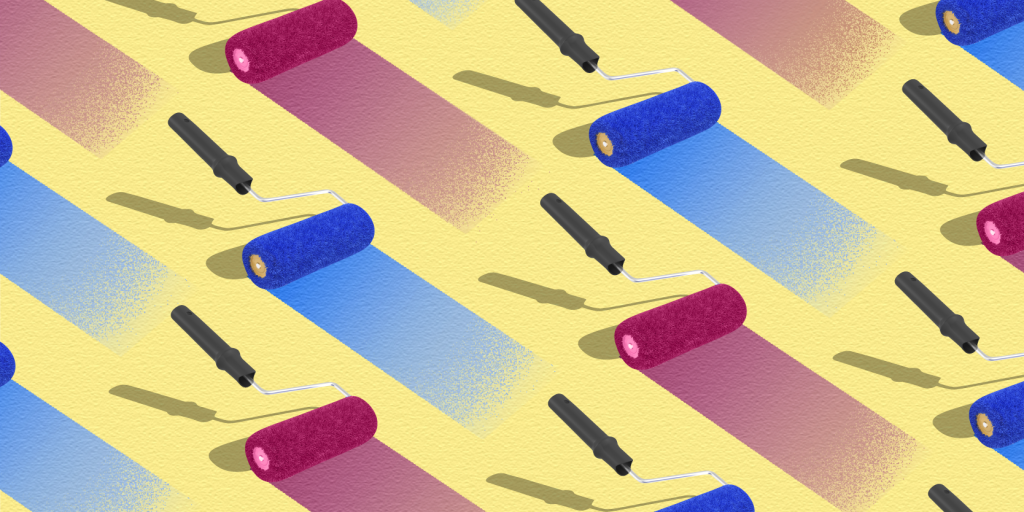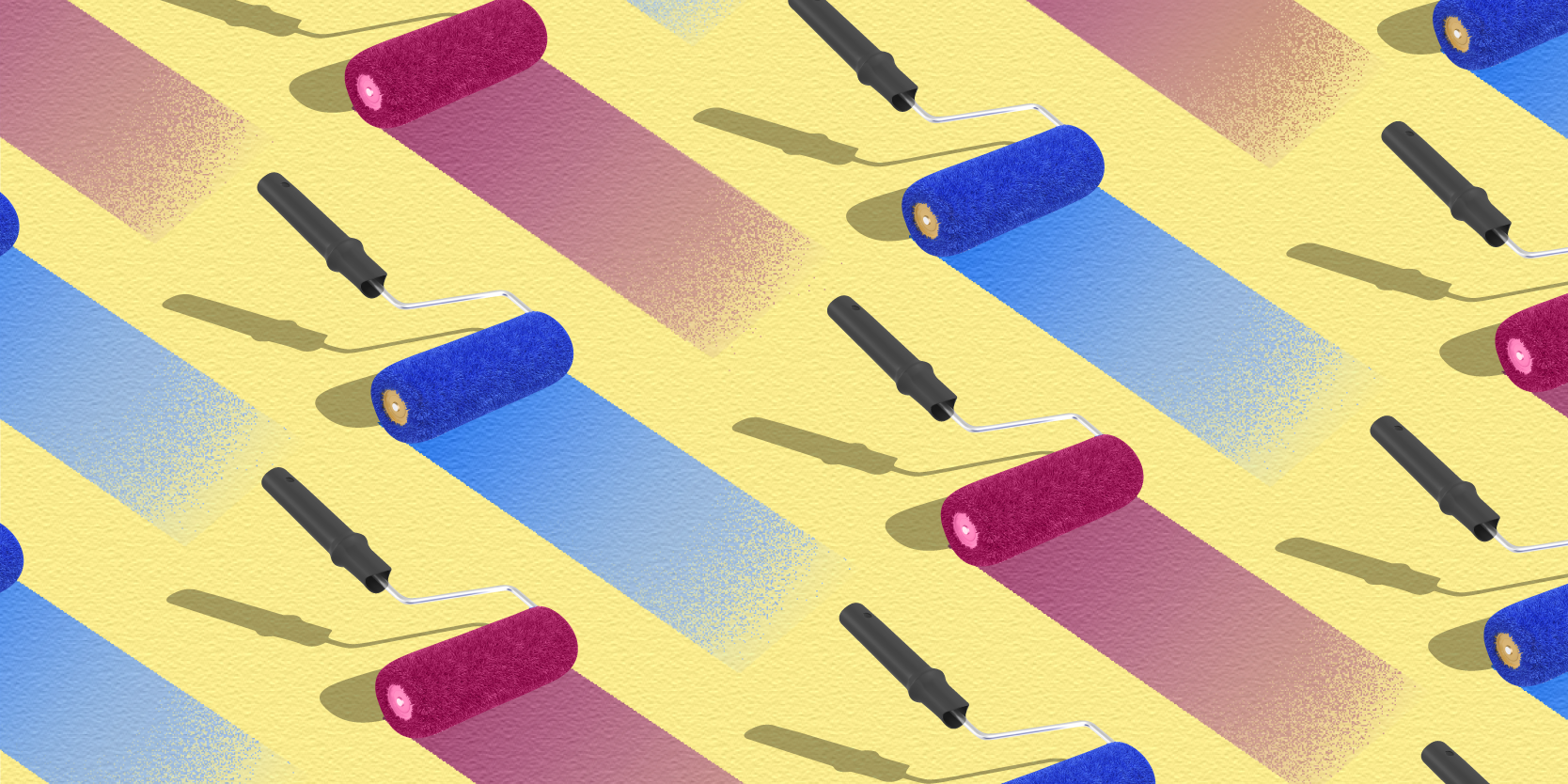
- Low sheen finishes hide imperfections but are hard to clean. Use them in low-traffic areas.
- Glossy sheens are easy to clean but highlight imperfections. Use them for high-traffic areas and trim.
- When in doubt, eggshell has a subtle shine with added durability.
- Visit Insider's Home & Kitchen Reference library for more stories.
There's more to choosing the right paint than just choosing the perfect color. The type of sheen you use can make or break your paint project.
Some sheens are shiny and reflect light, which can be bad if you're painting a rough or otherwise imperfect area. On the other hand, paint with no sheen can make your area look too dull, and can also be hard to clean.
We asked Krystal Mindeck, senior product manager at HGTV Home by Sherwin-Williams, and Hannah Yeo, color marketing and development manager at Benjamin Moore to explain the what, when, and why of paint finishes.
At a glance
| Finish | Sheen | Durability | Pros | Cons | When to use |
| Flat | None | Low | High coverage, hides imperfections | Difficult to clean | Imperfect walls, ceilings, low-traffic rooms like diving rooms and bedrooms |
| Eggshell | Medium-low | Medium-low | All around paint, hides imperfections | Somewhat difficult to clean | Medium traffic areas: Hallways, kids' bedrooms, living rooms, and laundry rooms |
| Satin | Medium | Medium | Easy to clean, provides subtle shine | Won't hide imperfections | High traffic areas: Kitchens, bathrooms, hallways, living rooms, and laundry rooms |
| Semi-gloss | High | High | Easy to clean, reflects light | Highlights imperfections | High traffic areas, trim, doors and millwork, cabinets/furniture, architectural details |
| High gloss | High | High | Reflects light, great for furniture | Highlights imperfections | High traffic areas, trim, doors, millwork, cabinets/furniture, wainscoting. |
Flat paint
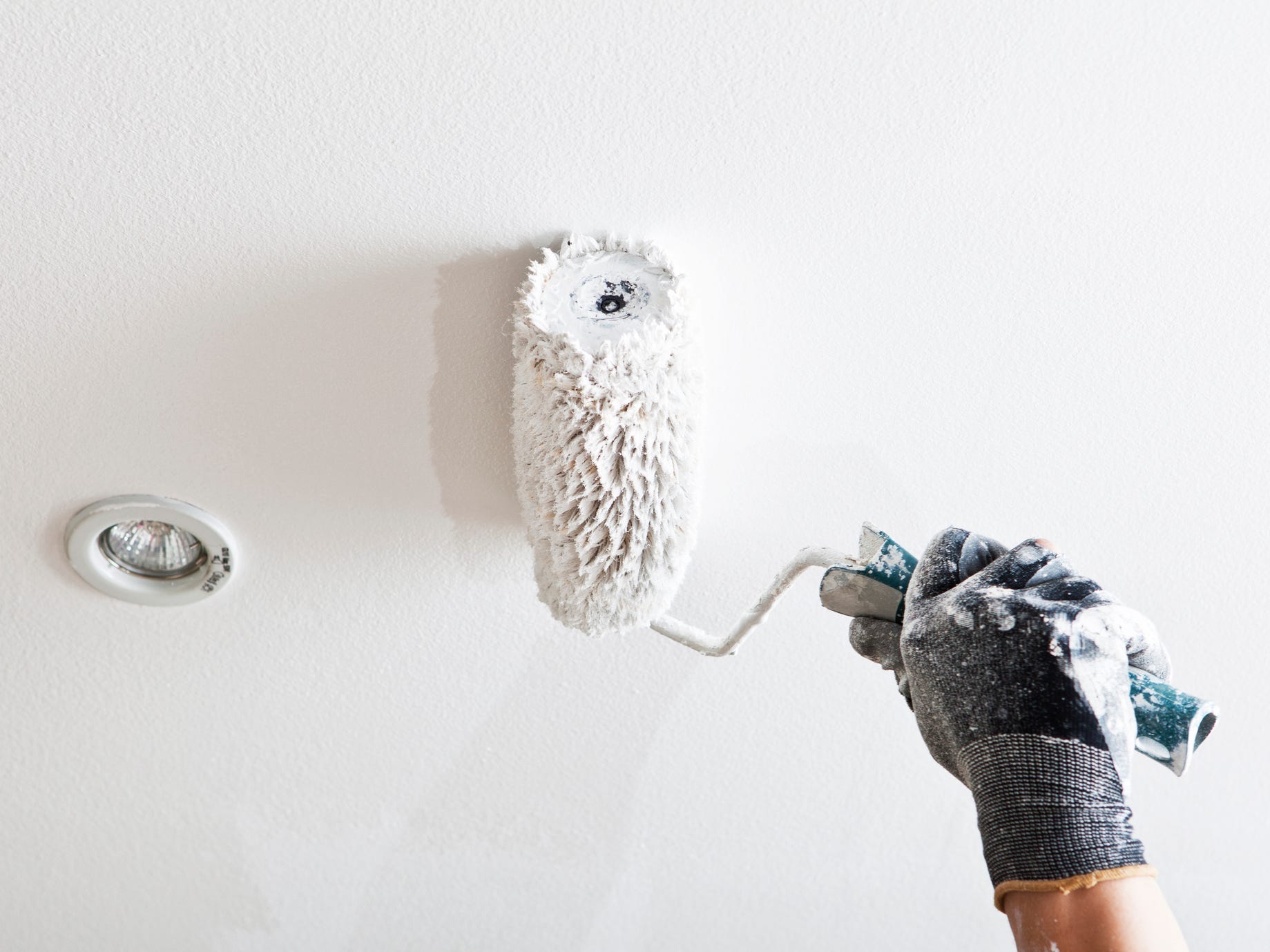
aronaze/Getty Images
Flat paint (also known as matte paint) is a good choice in several scenarios – especially if you're working with rough surfaces that have cracks, nail holes, etc. "Flat paint has virtually no gloss and is excellent for hiding surface imperfections and underlying colors," says Mindeck. "It also does a great job of toning down bold and bright colors, so they feel more livable – especially in spaces with low lighting."
However, Mindeck warns that flat paint has minimal washability and durability. In other words, it's difficult to clean since the paint has a porous texture that tends to actually trap dirt. And if you try to scrub it or use cleansers, you could end up damaging the paint since it's not as resilient as glossier finishes.
When should you use flat paint? "It's best for use for low traffic areas such as ceilings, dining rooms, and bedrooms," Mindeck says.
Eggshell paint
In terms of sheen, eggshell paint is a slight step up from flat paint. Its name is derived from the fact that the sheen is similar to an egg's shell. "An eggshell finish has a subtle sheen or gloss appearance," says Mindeck. And, it's more washable and durable than a flat finish. "Eggshell is a nice middle ground of durability and low-luster, which means it's an all-around paint that can be used for most rooms in your home."
Since eggshell resists stains better than flat paint, Mindeck recommends it in medium-traffic areas, such as hallways, kids' bedrooms, living rooms, and laundry rooms. But keep in mind that while it's easier to clean than flat paint, that doesn't mean that it's easy to clean.
"When in doubt of what paint finish to select, eggshell finish is an all-around a great choice as it provides an all-around subtle shine appearance with added durability," Mindeck advises.
Satin paint
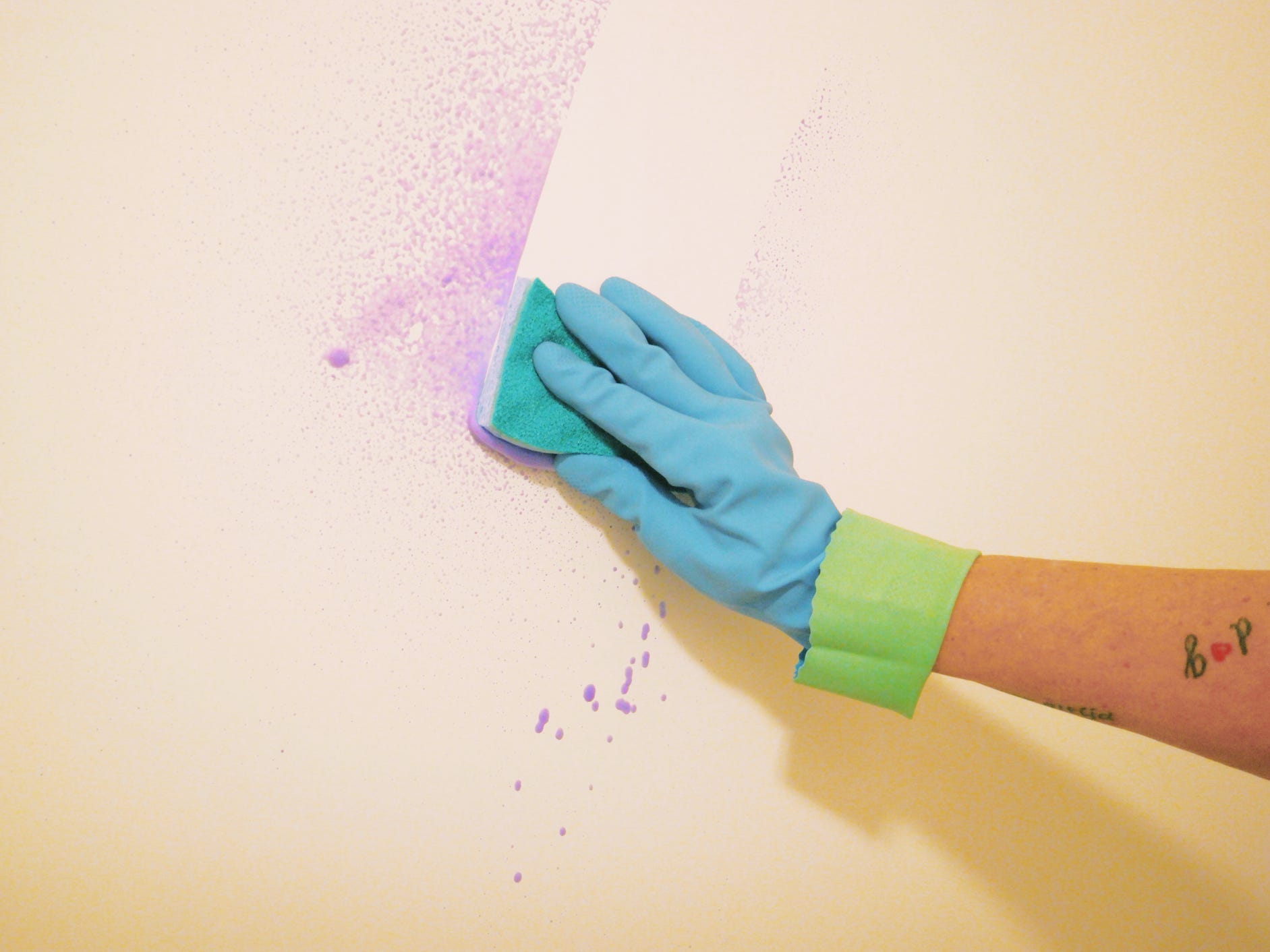
Catherine Douma / EyeEm/Getty Images
A satin finish is right in the middle on the shine/gloss spectrum. "Satin finishes are easy to wipe down, as they offer overall excellent washability, scrub resistance, and durability - more than an eggshell finish," says Mindeck.
This type of sheen is ideal for those busier spaces in your home. "I recommend using a satin finish in medium to high traffic areas such kitchens, bathrooms, laundry rooms, living rooms and hallways," she says.
Keep in mind that while it's not too shiny, it's just glossy enough to show imperfections.
Semi-gloss paint
If you want a high-sheen finish, semi-gloss is certainly a good option. "A semi-gloss finish creates a luminous look that cures to a smooth, furniture-like finish," says Yeo. It's not advisable to use on surfaces with imperfections since she says the light reflectance will accentuate those flaws.
"It is great for highlighting architectural details and creating dimension in a space, and is commonly used to paint trim, doors, and millwork, and also cabinets or furniture," says Yeo. And since it cures to a furniture-like finish, semi-gloss is considered one of the most durable sheens.
High-gloss paint
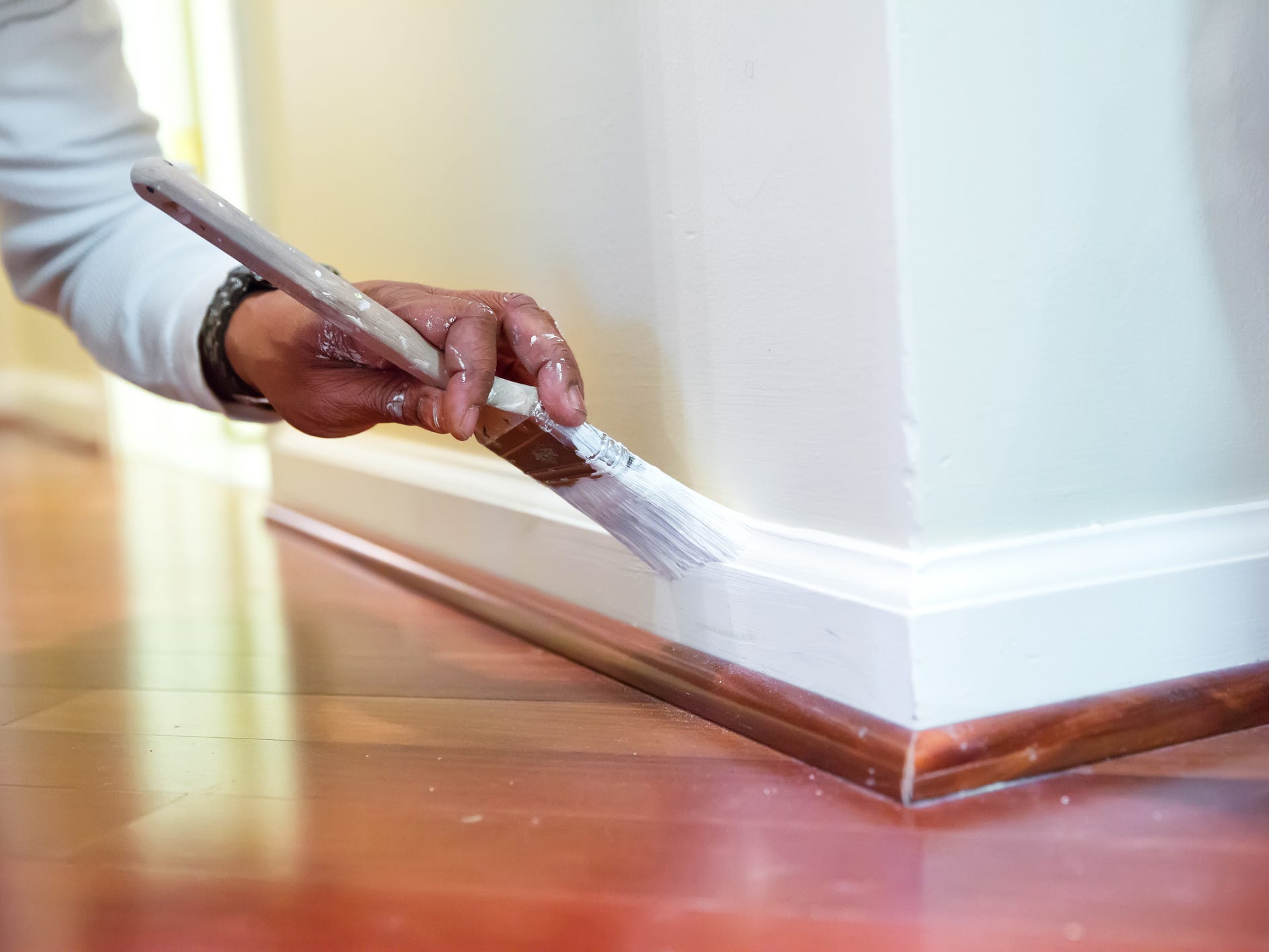
JodiJacobson/Getty Images
As its name implies, high-gloss finish has the most shine of the five finishes. "Compared to all other paint finishes, it reflects the most light and can add a mirror-like finish with stunning, elegant shine," Yeo says.
In addition, it's extremely durable and easy to clean. "Similar to a semi-gloss, high gloss finishes are commonly used in high-traffic areas such as trim, doors and millwork, cabinets and furniture, wainscoting, etc," she says.
It can also be used to add dimension and interest to a space. "Many designers use this mirror-like finish to feature a wall or to create a unique atmosphere," she says. "For example, create a luxe accent by using the same color as on the walls, but in a higher sheen on the ceiling." In addition, high-gloss paint is used to create a lacquer-like finish in accent furniture or kitchen cabinets.
As with semi-gloss paint, you shouldn't use it on an area that is not completely smooth, since it reflects so much light it will highlight any flaws.
Insider's takeaway
Selecting paint colors is only half of the puzzle. The right sheen can make or break your paint project. Flat and eggshell paint can help you hide imperfections but may be problematic if you expect the painted area to get dirty. On the other hand, glossy paint is much easier to clean, but doesn't do a good job of hiding imperfections.
